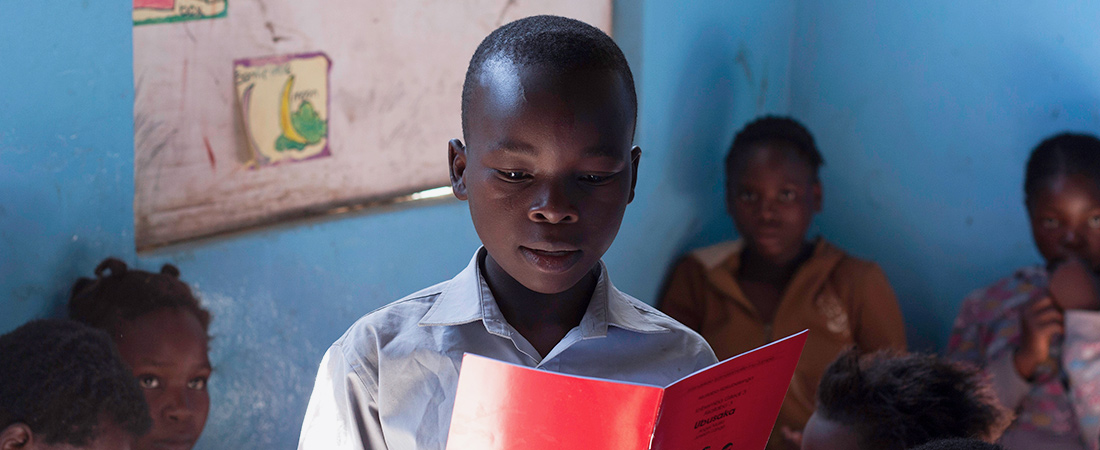
Literacy and mathematical programs deliver the promise of education to millions of children around the world.
We create and test learning experiences that lead to deep understanding and an ability to act thoughtfully upon the world. Whether in settings that are rich or poor in resources, we are committed to building sound foundations in literacy, science, and mathematics.
Through engaging classroom curricula, media instruction, digital tools, and teacher training, we equip children and young adults with the fundamentals they need to be successful—in school and in life.
Related Content
A Second Chance at School in Mali
In Mali, accelerated education is helping thousands of children get back to school.
Is Social Media Harmful to Students with Disabilities?
A new report on social media finds some benefits, but higher cyberbullying rates.
3 Ways to Stop the Summer Slide
Want to help kids keep learning this summer? Here are some tips for parents and caregivers.
How Schools Can Support Students Affected by Opioids
The trauma children experience as a result of opioid misuse at home can affect how they do in school—but schools can help.
3 Ways Schools Can Support Children Affected by the Opioid Crisis
Schools are uniquely positioned to address the needs of children exposed to trauma, says Shai Fuxman.
Accelerating Education in Liberia
An estimated 300,000 Liberian children do not attend school. What’s being done to provide more access to education?
Projects
Resources
Here are a few of our resources on behavioral, physical, and mental health. To see more, visit our Resources section.
In this video, NSF-funded researchers Arthur Barody, Jere Confrey, Paul Goldenberg, and Julie Sarama discuss the importance of mathematics education in the early grades.
Rwanda has made commendable efforts to improve basic education, including literacy in the early grades.
Instructional strategies that facilitate access to language and participation in mathematical discussions are essential to promote equitable learning opportunities for multilingual learners in the
EDC’s systemic equity review framework helps education leaders take a deeper look at inequities in order to understand the complex systems that affect student performance. While equity audits have historically played a role in curriculum assessments and state accountability systems, achievement gaps by race and class persist in U.S. public schools.
EDC’s basic education programs in low-resource contexts support the development of learners who can use language to explain and analyze the world around them and who have the foundational skills to think critically and solve the range of problems they will encounter in school and life.
This report describes how the Regional Education Laboratory Northeast & Islands at EDC supported the formulation and implementation of a new data- and research-based discipline policy in one mi
This report presents results of the endline literacy and mathematics assessments conducted in October 2016.
This report presents results of EDC’s Building State Capacity for Leadership in K–12 Computer Science Education Summit.
This study of Interactive Radio Instruction (IRI), written for the World Bank by EDC staff, shows that radio is an accessible and effective tool for active learning inside and outside of the classroom.
In this summary report, the authors share findings and recommendations from their review of existing research, exploration of teacher professional development programs, and interviews with teachers.